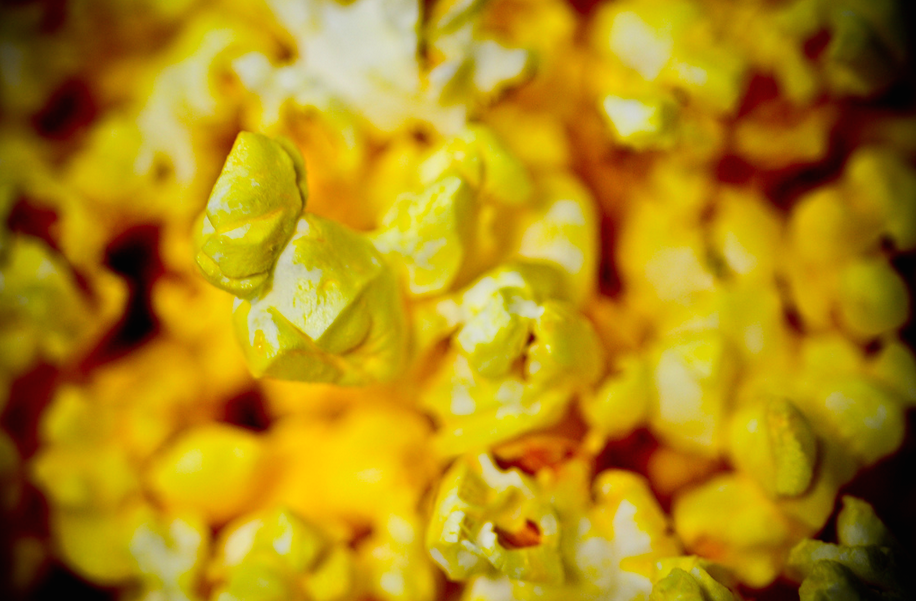Why Does Popcorn Pop, Anyway?
The short answer: Water vapor that builds up inside the kernel when the popcorn is heated is expelled rapidly, while the cavity inside the kernel acts as an “acoustic resonator,” resulting in an audible pop, says a team of French scientists in a new study published today in the Journal of the Royal Society Interface.
“Such a scenario has been applied to … the ‘pop’ of a champagne bottle cork,” the authors add.
The team used high-speed imaging techniques to study the popping corn at 2,900 frames per second, to show that the kernel is shot into the air by a “leg” of expanding starch that pushes off the heated plate, much like an acrobat performing a somersault.
Above a critical vapor pressure, the hull breaks apart, while the starch in the popcorn expands to form “a spongy flake of various shapes,” better known as the stuff you pour butter on and put in your mouth.
“As a result, popcorn is midway between two categories of moving systems: explosive plants using fracture mechanisms and jumping animals using muscles,” the authors write. “By synchronizing video recordings with acoustic recordings, we propose that the familiar ‘pop’ sound of the popcorn is caused by the release of water vapour.”
And there you have it. Now time for some popcorn.
*100 degrees Celsius or 212 Fahrenheit
Want more consumer news? Visit our parent organization, Consumer Reports, for the latest on scams, recalls, and other consumer issues.


